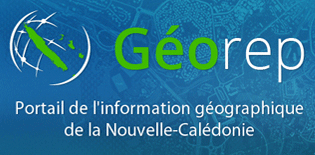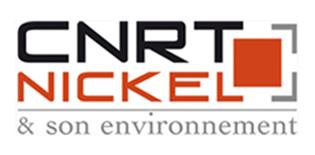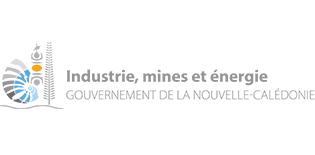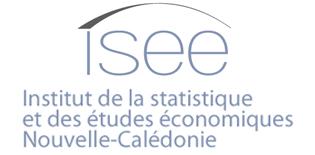Frequently asked questions forum
Nickel.NC is a work cycle intended to bring together available knowledge about Caledonian nickel by having all the stakeholders collaborate, and not just the miners, metallurgists and politicians.
The objective is to share the knowledge existing in New Caledonia and to promote the advantages of Caledonian nickel at an international level.
The world nickel market is starting to undergo significant transition with the emergence of criteria of durability and/or sustainability and with a strong demand for “traceable” nickel, meeting high standards both in environmental and social terms. This evolution concerns particularly the electric battery market but other customers are also starting to take interest.
New Caledonia has significant advantages in this field to be highlighted. Undertaking this accumulation of knowledge now will enable what is already proposed by the Caledonian nickel sector to be promoted on the international stage.
The idea was announced in the general policy speech of the Government given by Thierry Santa, on August 22, 2019, in the following terms:
“I will organise during the first part of 2020 a general consultation on nickel which will bring together the miners, metallurgists, the Provincial departments concerned, along with those at a national level, representatives of the State and the Traditional Community authorities”.
The Government adopted the project on a collegial basis and then set up the current format of the work cycle.
The final outcome has not been specifically set in the sense that it will depend on what the working groups in conjunction with all the different stakeholders, will produce during their reflections.
If the aim is to share available knowledge in the most complete manner possible and as transparently as possible, the final result will necessarily depend on the work it has been possible to achieve by the end of the work cycle.
In the particular context of the Nickel.NC work cycle, a stakeholder is an actor, either individual or collective (group or organization), actively concerned by changes in the Caledonian nickel sector; in other words, whose interests may be affected positively or negatively by this transition.
No general list of stakeholders existed before the start of the preparation for this work cycle. The team in charge of the organisation therefore proceeded with a survey, based on the selected definition for stakeholders. This list was then shared with the supervisors and other actors for completion.
All the stakeholders are involved in all the working group themes.
No, the list can evolve and will be updated as the process develops, in line with the original criteria.
By not being considered as a stakeholder does this mean that we are not involved in the work cycle ?
Nickel concerns, directly or indirectly, everyone living in New Caledonia. However, not everyone has access to the knowledge or experience of a kind likely to enrich the general reflection undertaken by this work cycle.
During this first phase it is a question of gathering together knowledge but also, via a citizens’ consultation, of collecting opinions and views from a maximum of Caledonians, notably to act as a guide for the work output and to put future conclusions into perspective.
The citizens’ consultation is open to all inhabitants of New Caledonia and is available on the web site, https://nickel.nc
The supervisor’s task is to organise the work of the groups around the selected theme. Each supervised group is free to define its own working method and to consult all or some of the identified stakeholders. The supervisors are just expected to maintain transparency, in other words to specify those stakeholders who are consulted and to report all opinions or contributions put forward.
In relation to the spirit of the work cycle, the aim was to seek supervisors with a capacity for animation, reflection and synthesis, with an interest in the process and an availability in terms of time available to be invested in the work.
For each group we have tried to find several supervisors so as to ensure an expression of diverse viewpoints and a respect of all opinions.
The wish of the work cycle was to open up the question of Nickel to as large an audience as possible. All the miners and metallurgists were met on an individual basis but the proposal to supervise certain groups (the working groups on “one-stop service”, “resources and reserves”, and “economic benefits”) was addressed to the Union of Metallurgy Industries (SIM) and the Union of Ore Exporters (SEM).
The choice of supervisors from mining and metallurgy companies was therefore undertaken by the SIM/SEM bodies.
Three groups from the six are co-supervised by a representative from the mining or metallurgy sector and we are expecting a strong “natural” participation from these actors to the production of each working group.
New Caledonia has already undertaken in-depth reflection and a rich production over the last 40 years, and even more if we take into account the archives centralised by the University of New Caledonia.
This work cycle represents a continuation of work already carried out and the 5 first themes are directly inspired by the work of the Mining Scheme (2009). At the request of several stakeholders, the theme on “economic benefits of mining and metallurgy activities” was added to the cycle.
The members of the Steering Committee are the Presidents of Caledonian institutions, including: the President of the Government, the Vice-President of the Government, the President of Congress, the Presidents of the three Provinces and the President of the Traditional Community Senate. It also includes the Presidents of the mining and metallurgy unions, the SIM and the SEM.
The Steering Committee has the prerogative of being kept informed as a priority on the contents of the work cycle and to transfer any particular requests to the working group supervisors.
The Steering committee does not have a control or managing role in relation to the work of the groups.
The criteria for selection include a solid knowledge of the field, an absence of any commercial approach, an international reputation and a complementarity with local expertise.
An expert will hold a general point of view which will contribute to achieving in-depth examination, clarification or perspectives.
An observer will have an objective point of view (subject or place) and provide elements of comparison with the current situation in New Caledonia.
The role of the web site, Nickel.NC, is to centralise the work production of the groups. Documents will be progressively posted on-line. In addition this production will be presented during the concluding conference day, which will be accessible on internet and in the media.
Due to the health context, the concluding mornings will be held remotely in the form of webinars. These meetings will be broadcast live on the Facebook page Nickel.NC






